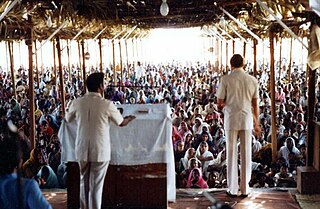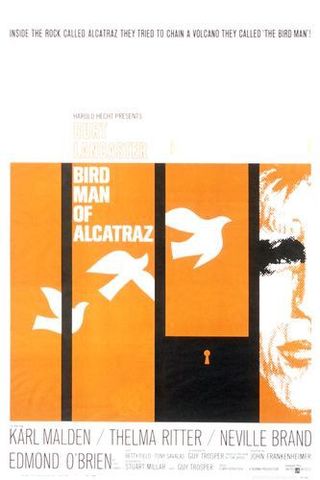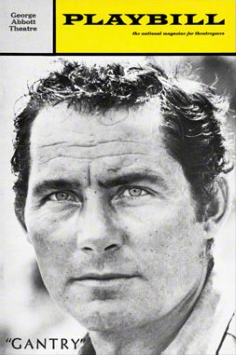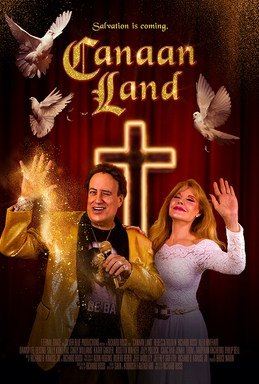
Burton Stephen Lancaster was an American actor and film producer. Initially known for playing tough guys with a tender heart, he went on to achieve success with more complex and challenging roles over a 45-year career in films and television series. He was a four-time nominee for the Academy Award for Best Actor, and he also won two BAFTA Awards and one Golden Globe Award for Best Lead Actor. The American Film Institute ranks Lancaster as #19 of the greatest male stars of classic Hollywood cinema.

Sweet Smell of Success is a 1957 American film noir drama film directed by Alexander Mackendrick, starring Burt Lancaster, Tony Curtis, Susan Harrison, and Martin Milner, and written by Clifford Odets, Ernest Lehman, and Mackendrick from the novelette by Lehman. The shadowy noir cinematography filmed on location in New York City was shot by James Wong Howe. The picture was produced by James Hill of Hecht-Hill-Lancaster Productions and released by United Artists. The supporting cast features Sam Levene, Barbara Nichols, Joe Frisco, Edith Atwater, David White, and Emile Meyer. The musical score was arranged and conducted by Elmer Bernstein and the film also features jazz performances by the Chico Hamilton Quintet. Mary Grant designed the costumes.

Elmer Gantry is a satirical novel written by Sinclair Lewis in 1926 that presents aspects of the religious activity of the United States in fundamentalist and evangelistic circles and the attitudes of the 1920s public toward it. Reverend Dr. Elmer Gantry, the protagonist, is attracted by drinking, making easy money and chasing women. After various forays into smaller, fringe churches, he becomes a major moral and political force in the Methodist Church despite his hypocrisy and serial sexual indiscretions.

John Arthur Kennedy was an American stage and film actor known for his versatility in supporting film roles and his ability to create "an exceptional honesty and naturalness on stage", especially in the original casts of Arthur Miller plays on Broadway. He won the 1949 Tony Award for Best Featured Actor in a Play for Miller's Death of a Salesman. He also won the Golden Globe for Best Supporting Actor for the 1955 film Trial, and was a five-time Academy Award nominee.

Jean Merilyn Simmons was a British actress and singer. One of J. Arthur Rank's "well-spoken young starlets," she appeared predominantly in films, beginning with those made in Britain during and after the Second World War, followed mainly by Hollywood films from 1950 onwards.

A revival meeting is a series of Christian religious services held to inspire active members of a church body to gain new converts and to call sinners to repent. Nineteenth-century Baptist preacher Charles Spurgeon said, "Many blessings may come to the unconverted in consequence of a revival among Christians, but the revival itself has to do only with those who already possess spiritual life." These meetings are usually conducted by churches or missionary organizations throughout the world. Notable historic revival meetings were conducted in the United States by evangelist Billy Sunday and in Wales by evangelist Evan Roberts. Revival services occur in local churches, brush arbor revivals, tent revivals, and camp meetings.

Richard Brooks was an American screenwriter, film director, novelist and film producer. Nominated for eight Oscars in his career, he was best known for Blackboard Jungle (1955), Cat on a Hot Tin Roof (1958), Elmer Gantry, In Cold Blood (1967) and Looking for Mr. Goodbar (1977).

John Herrick McIntire was an American character actor who appeared in 65 theatrical films and many television series. McIntire is well known for having replaced Ward Bond, upon Bond's sudden death in November 1960, as the star of NBC's Wagon Train. He played Christopher Hale, the leader of the wagon train from early 1961 to the series' end in 1965. He also replaced Charles Bickford, upon Bickford's death in 1967, as ranch owner Clay Grainger on NBC's The Virginian for four seasons.
Harold Adolphe Hecht was an American film producer, dance director and talent agent. He was also, though less noted for, a literary agent, a theatrical producer, a theatre director and a Broadway actor. He was a member of the Academy of Motion Pictures Arts and Sciences and the Screen Producers Guild.

Mantrap is a 1926 American silent comedy film based on the novel of the same name by Sinclair Lewis. Mantrap stars Clara Bow, Percy Marmont, Ernest Torrence, Ford Sterling, and Eugene Pallette, and was directed by Victor Fleming.
Elmer Gantry's Velvet Opera, at various times also known as "Velvet Opera", was a British rock band active in the late 1960s. Members of the band, Richard Hudson, John Ford and Paul Brett, would later become members of The Strawbs, Hudson Ford and Stretch.
The 18th Golden Globe Awards, honoring the best in film for 1960, were held on March 16, 1961.

Birdman of Alcatraz is a 1962 American biographical drama film directed by John Frankenheimer and starring Burt Lancaster. It is a largely fictionalized version of the life of Robert Stroud, who was sentenced to solitary confinement after having killed a prison guard. A federal prison inmate, he became known as the "Birdman of Alcatraz" because of his studies of birds, which had taken place when he was incarcerated at Leavenworth Prison where he was allowed to keep birds in jail. When moved to Alcatraz, Stroud was never allowed to keep any birds.

Gantry is a musical with a book by Peter Bellwood, lyrics by Fred Tobias, and music by Stanley Lebowsky.
The 26th New York Film Critics Circle Awards, honored the best filmmaking of 1960.
The 14th British Academy Film Awards, given by the British Academy of Film and Television Arts in 1961, honoured the best films of 1960.
Elmer Gantry is a 2007 American opera by Robert Aldridge to a libretto by Herschel Garfein based on the 1927 novel by Sinclair Lewis of the same name. The Nashville Opera presented the world première in November 2007.

Warren Reynolds "Ray" Walker was an American actor, born in Newark, New Jersey, who starred in Baby Take a Bow (1934), Hideaway Girl (1936), The Dark Hour (1936), The Unknown Guest (1943) and It's A Wonderful Life (1946).
Burton Stephen Lancaster was an American actor and producer. Initially known for playing tough guys with a tender heart, he went on to achieve success with more complex and challenging roles over a 45-year career in film and, later, television. He was a four-time nominee for the Academy Award for Best Actor, and he also won two BAFTA Awards and one Golden Globe Award for Best Lead Actor. The American Film Institute ranks Lancaster as #19 of the greatest male stars of classic Hollywood cinema.

Canaan Land is a 2020 American comedy-drama film written and directed by Richard Rossi and starring Richard Rossi as Brother Billy and Rebecca Holden as Sister Sara Sunday. It is based on the novel of the same name by Rossi. Like the novel it was based on, the film generated controversy at the time of its release from evangelical religious groups, who took issue with Rossi exposing fraudulent faith-healing techniques of well-known televangelists.














